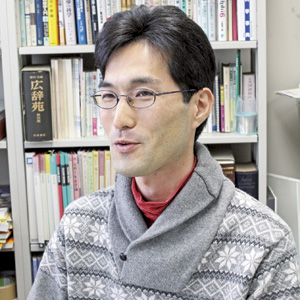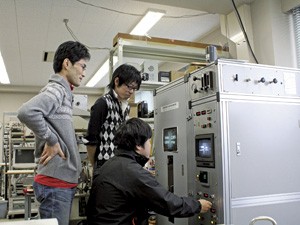
-

Environment
-

Energy
-

Physics
NAITO Tomoyuki Professor
Course
-
Faculty
Materials Science
-
Master's Program
Materials Science and Engineering
-
Doctoral Program
Fundamental and Applied Sciences
Degrees Obtained
- Doctorate (Science) Field of degree: Physics
Fields of Research
- Pure and applied physics of superconductivity
- Low temperature physics
Profile
- September 1998: Completed Physics Doctoral Program, Graduate School of Science, Tohoku University
- October 1998 - September 2006: Assistant Professor, School of Materials Science, Japan Advanced Institute of Science and Technology
- October 2006 – February 2016: Assistant Professor, Department of Materials Science and Engineering, Faculty of Engineering, Iwate University
- March 2016: Associate Professor, Department of Materials Science and Engineering, Faculty of Engineering, Iwate University
- April 2016 - August 2021: Associate Professor, Department of Physical Science and Materials Engineering, Faculty of Science and Engineering (organizational changes), Iwate University
- September 2021 - Present: Professor, Department of Physical Science and Materials Engineering, Faculty of Science and Engineering, Iwate University
Research Themes
Proactive joint research with companies in the field of superconductors
I develop new magnetization methods for bulk superconductors to realize supplementary magnetic fields exceeding 6 Tesla in small, transportable equipment. This research, which clarifies magnetization phenomena through the simultaneous measurement of temperatures and magnetic fields, is at the forefront in fields that make use of superconductors, such as magnetic separation in sewage treatment. I also proactively conduct joint research with companies. I also grow new types of bulk superconductor crystals, and am building a database of thermophysical properties of various oxide superconductors in low temperatures and strong magnetic fields.

Teaching Philosophy
I educate students to gain the fundamental knowledge in the material sciences (particularly the field of electronic materials) and physics necessary for physical and material science and engineering, and use this knowledge to develop scientific technologies.


